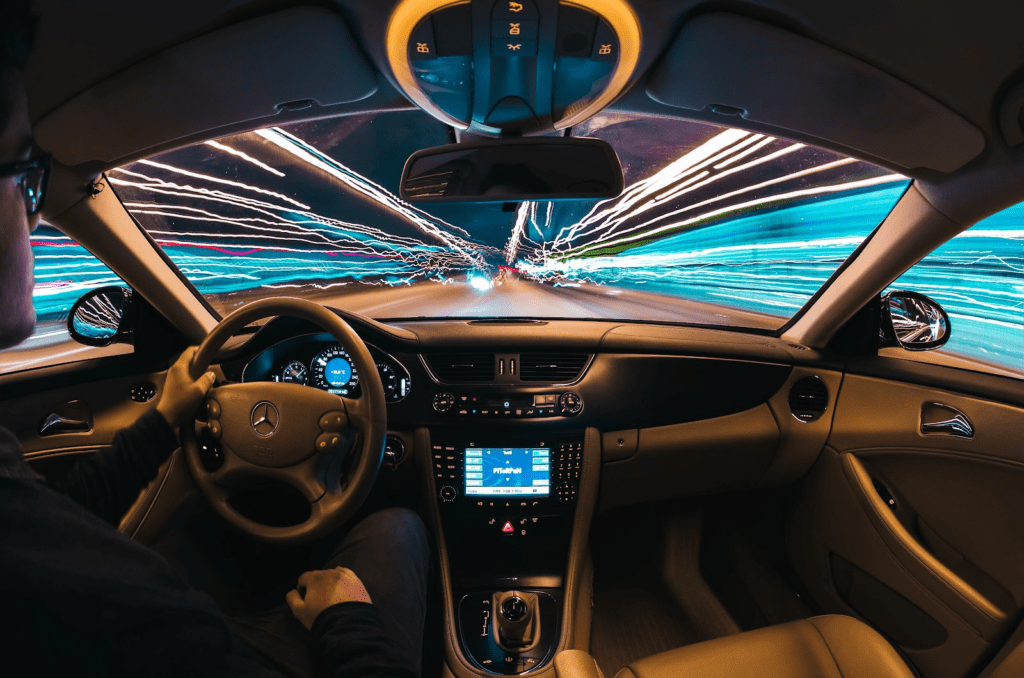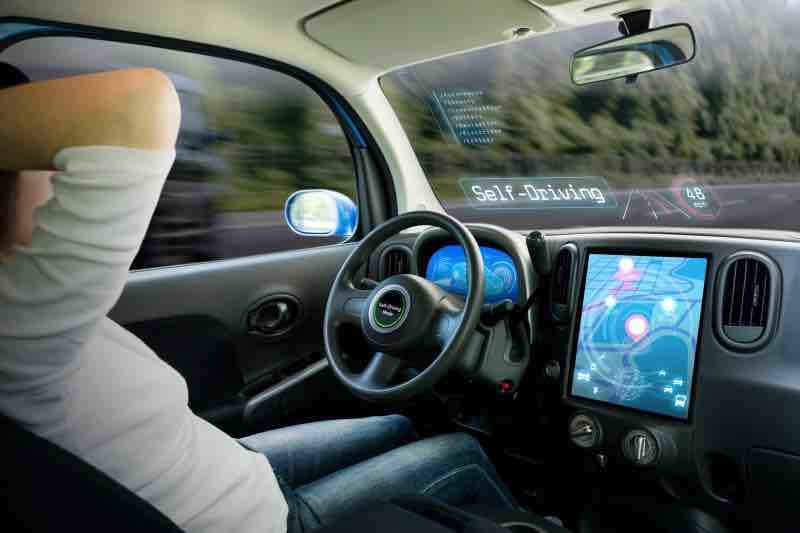Last updated on July 7th, 2023 at 09:31 pm

The concept of self-driving cars has been around for a while, and with recent technological advances, they have become more prevalent on the roads. However, the question remains: Are they safe? In this article, I will examine the pros and cons of self-driving cars in more detail.
What are self-driving cars?
A self-driving car, sometimes referred to as an autonomous or driverless car, is a vehicle that moves from one place to another without a driver — by combining artificial intelligence (AI), radar, cameras, and sensors.
A vehicle must be able to go to a predefined location without human assistance to be called fully autonomous — even on roads that have not been specially constructed for them.
Today, several automobile companies: Audi, Ford, Volvo, Google, BMW, Tesla, General Motors, and VW, are developing and testing self-driving cars. In Google’s testing, a fleet of self-driving cars — including a Toyota Prii and an Audi TT— was able to travel over 140,000 miles on California’s roads and highways.
Are self-driving cars safe?
Self-driving cars represent one of the most thrilling and significant uses of AI. In the United States alone, over 35,000 individuals lose their lives every year in car accidents.
Because self-driving vehicles are theoretically capable of reacting faster than human drivers, as well as not being subject to the same risks such as driving under the influence of alcohol, texting while driving, or fatigue; they have the potential to greatly enhance vehicle safety.
Furthermore, self-driving vehicles have the potential to increase the autonomy and mobility of elderly individuals and those who find driving very challenging.
The pros and cons of self-driving cars
Self-driving cars have the potential to revolutionize transportation as we know it. However, there are advantages and disadvantages to this technology. The following are some of the primary benefits and drawbacks of autonomous vehicles:
Pros of self-driving cars
- Decreased auto accidents
The majority of traffic accidents, according to the National Highway Traffic Safety Agency (NHTSA), are caused by human error.
Self-driving cars can drastically lower the danger of costly human errors—by relying on cutting-edge technology and algorithms. Self-driving cars would eliminate hazards like drunk driving and distracted driving, which have been key contributors to accidents.
According to some predictions, self-driving cars might be able to reduce the number of accidents caused by 90%.
- Cost-saving potential
According to studies, self-driving cars have the potential to save almost $800 billion annually. The reduction in expenses associated with car crashes, decreased burden on the healthcare system, greater transportation efficiency, improved fuel economy, and more, can all contribute to substantial societal cost-savings.
- Eco-friendly
Electric power in self-driving cars is anticipated to replace internal combustion engines. Also, because self-driving cars will travel at steady speeds, there won’t be as much need for frequent braking and acceleration, which reduces emissions and improves sustainability.
- Improved accessibility for the elderly, disabled
According to a 2017 study by the Ruderman Family Foundation, self-driving cars could provide a safer and more accessible mode of transportation for people with disabilities, opening up new employment opportunities for up to 2 million people and preventing $19 billion in healthcare costs each year as a result of missed medical appointments. Together with this, autonomous vehicles have more significant potential effects that might result in $1.3 trillion in savings through greater productivity, lower fuel costs, and accident prevention, among other things.
- Traffic efficiency
Self-driving cars have a significant advantage in their capacity to intercommunicate. By exchanging real-time data, these cars can travel at optimal distances from each other, which enables efficient travel.
Also, they can assist you in avoiding traffic congestion by determining the best route to take, decreasing the possibility of bumper-to-bumper traffic jams.
Cons of self-driving cars
While self-driving cars have advanced technology, they can still face some disadvantages. Some of the negatives of self-driving cars are:
- Increased proneness to error
Self-driving cars’ dependence on technology makes them more vulnerable to errors and glitches. They rely on complex algorithms and advanced sensors to navigate roads and make decisions, which means that any technical issue or malfunction can have serious consequences.
- The necessity for widespread adoption is imperative.
For a fully autonomous system to work, all vehicles on the road must be self-driving, regardless of the benefits I mentioned earlier. However, this concept could potentially deprive people of their independence to drive on their own.
- Security issues
Another negative side of self-driving automobiles is their susceptibility to hacking. They require a shared network protocol for communication and coordination, which can make a large number of cars susceptible to hacking. A minor hack could significantly impact busy roads, causing collisions and traffic congestion.
- Individuals could potentially forget how to drive a car manually
While this is not a problem when the autonomous vehicle is operating as intended, it becomes essential to have the ability to drive the car safely manually if the self-driving system encounters any issues.
To address any issues that may develop due to a malfunctioning autonomous system, it is crucial to make sure that people have the minimum skill set required for manual driving, even if self-driving cars become the industry standard.
- High cost of maintenance
As the technology supporting self-driving vehicles is not yet fully developed, the knowledge of most mechanics in this field is also limited. This makes it difficult for technicians to diagnose problems with self-driving cars, making maintenance difficult and expensive.
What are the negatives of self-driving cars?
One of the main negatives of self-driving cars is the loss of jobs in the transportation sector. Long-haul truck drivers and Uber drivers may be replaced by self-driving trucks/cars, resulting in a huge loss of employment in the sector.
Technical malfunctions are yet another drawback. Self-driving cars depend on technology which makes them susceptible to errors and hacking.
Are Self-Driving Cars Legal?
While some nations and states have legalized self-driving cars, many different states and countries do not.

Presently, Florida, Utah, North Carolina, Georgia, North Dakota, Nevada, and West Virginia legalized self-driving cars and they do not require a driver behind the wheel.
But states like Pennsylvania, Arizona, Kansas, and Nebraska require a licensed driver to be behind the wheel in case a human operator needs to take over.
Should Self-Driving Cars be Legal?
The debate over the legalization of self-driving cars is ongoing.
Some proponents of self-driving cars argue that self-driving cars have the potential to reduce accidents, increase mobility and boost the economy. The Opponents, however, voice concerns about safety, job loss, and privacy.
Conclusion
The ongoing debate about self-driving cars and the usage of completely autonomous technology continues, and we will see more advances in this field. However, you should consider how to seamlessly integrate these advancements into your daily routines to stay ahead of the curve.
References

Hi dear, my name is Jeffery Ekweghi, and I am a certified mechanic and autobody parts technician. I created this site to share my expertise and experience with car lovers looking to resolve their car-related issues. I am certified in private cars and heavy-duty commercial vehicles. I have worked as a mechanic since 2015 and have experience in vehicle brands like Subaru, Jeep, Toyota, TATA, BMW, Mazda, Honda, Nissan, Kia, TVs, and Others; however, I primarily specialize in Toyota vehicles.



